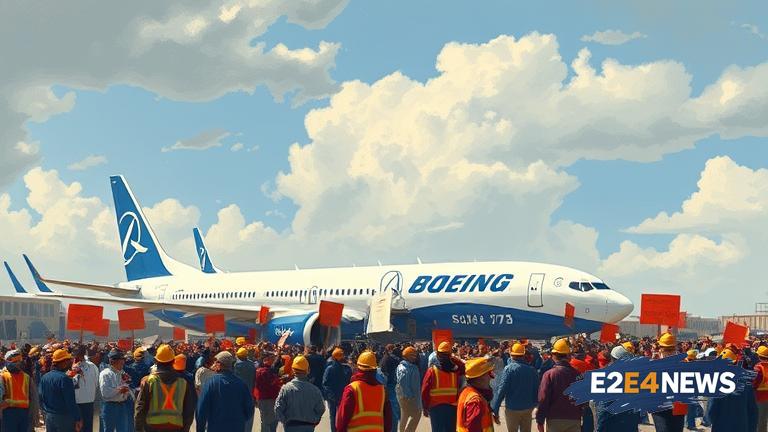In a significant development, thousands of Boeing workers who are involved in the production of fighter jets and weapons have embarked on a strike. The strike is a result of a dispute over contract negotiations between the workers’ union and the company. The workers, who are members of the International Association of Machinists and Aerospace Workers (IAM), have been seeking better pay, benefits, and working conditions. However, the company’s offer has been deemed unsatisfactory by the union, leading to the strike. The strike affects several Boeing facilities across the United States, including those in St. Louis, Missouri, and other locations. The workers involved in the strike are responsible for producing some of the most advanced military aircraft and weapons systems in the world. The F-15, F-18, and F-22 fighter jets are among the products manufactured by these workers. The strike is expected to have significant implications for the US military’s procurement plans and could potentially lead to delays in the delivery of critical equipment. The IAM has stated that the strike is a last resort and that the union is committed to reaching a fair agreement with Boeing. The company, on the other hand, has expressed disappointment over the strike and has urged the union to return to the negotiating table. The strike has also drawn attention from lawmakers and government officials, who are concerned about the potential impact on national security. The US Department of Defense has stated that it is monitoring the situation closely and is working to mitigate any potential disruptions to military operations. The strike is also expected to have economic implications, with potential losses to the local economy and job market. Boeing has offered a contract that includes a 10% pay increase over four years, but the union has rejected this offer, citing concerns over benefits, job security, and working conditions. The IAM has proposed a counteroffer that includes a 15% pay increase over three years, as well as improvements to benefits and working conditions. The company has refused to budge, leading to the current impasse. The strike is a significant escalation of the labor dispute and highlights the deepening rift between Boeing and its unionized workforce. The IAM has stated that it will continue to negotiate with Boeing, but the union is prepared to stay on strike for as long as necessary to achieve a fair contract. The strike has also sparked concerns about the potential for similar labor disputes at other major defense contractors. The US military’s reliance on private contractors for equipment and services has created a complex web of relationships between government, industry, and labor. The Boeing strike highlights the need for greater transparency and accountability in these relationships, as well as the importance of fair labor practices in the defense industry. As the strike continues, attention will be focused on the negotiations between Boeing and the IAM, with the potential for a resolution or further escalation. The outcome of the strike will have significant implications for the US military, the defense industry, and the broader economy.





